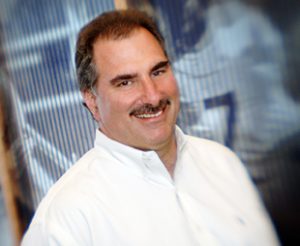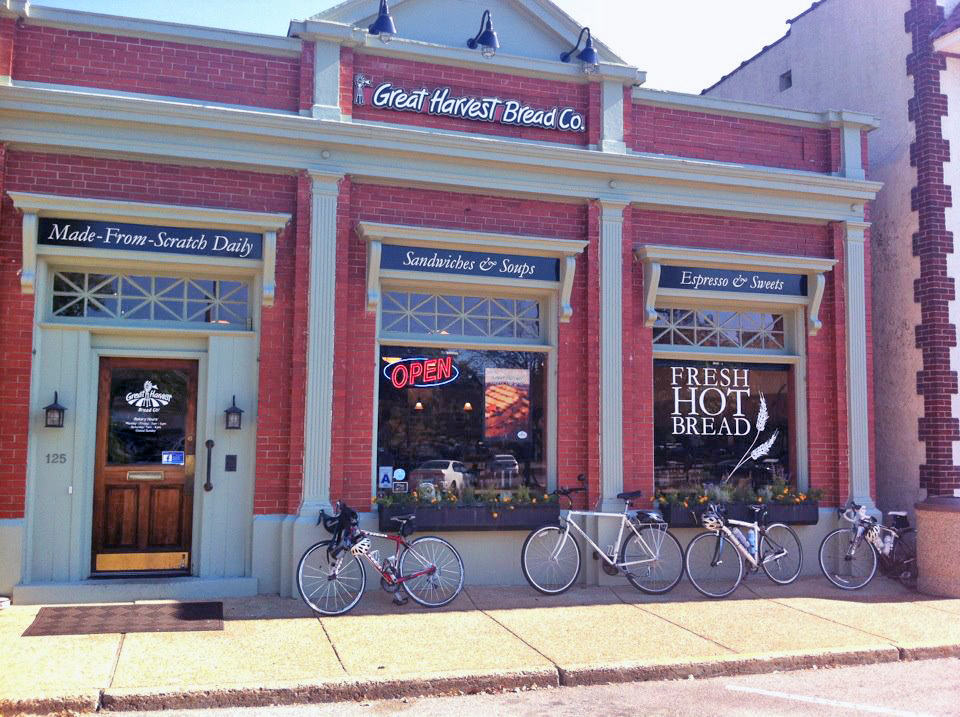Great Harvest Bread Co. taking aim at Panera
Great Harvest Bread Co. may not be a name familiar to many area residents, but that”™s about to change as the Dillon, Montana, bakery/café chain takes aim at the Northeast ”“ and at one competitor in particular.

“There”™s a real opportunity for somebody to compete with Panera,” Great Harvest Bread Co. President Eric Keshin told the Business Journal. “And we feel that we”™re that somebody.”
Though its approximately 215 stores pale next to Panera”™s 2,000-plus, GHBC believes that both its business model and its wares are sufficient to take a considerable bite out of the Missouri-based bread behemoth, which posted third-quarter 2016 revenues of $684.2 million and is expected to report fourth-quarter revenues of around $728.2 million on Feb. 8.
The 40-year-old GHBC thinks the Northeast is ripe for development, especially in the wake of Panera”™s closing stores in Newtown, Darien and Westport last year. The corporation had little to say about the motives behind the closings ”“ the leases were simply allowed to expire. It is not known whether Newtown’s longstanding policy of not allowing drive-through windows for restaurants came into play.
Keshin said those closings “opened a window for us. We feel that we can appeal to Fairfield and Westchester County diners because our restaurants operate as ”˜freedom franchises”™” ”“ meaning that franchisees can personalize their décor and menu choices to suit their markets ”“ “instead of all looking and feeling the same and just contributing to sprawl.”
For example, an outlet in a predominantly Jewish area might find challah or babka among its top sellers, he said, while one in New Orleans might not offer those at all, preferring to promote a king cake. Seasonal specialties such as Irish soda bread and/or Guinness and gouda bread can also be timed to coincide with St. Patrick”™s Day, Keshin said.
Sandwiches, soups and salads are sourced from local farmers and vendors, and while the chain has a cache of hundreds of recipes, Keshin said that, again, franchisees can tweak those recipes or introduce their own to maximize local appeal.
Another differentiator for the company is its “hub and spoke” bakery-café model, whereby franchisees can buy a large territory that includes a single Great Harvest Bread Co. bakery operation, usually measuring 2,000 to 2,500 square feet, and as many café-only units (typically around 2,200 square feet) as they desire in surrounding towns. The bakery locations are equipped with 40-loaf ovens to produce and deliver hand-milled breads to the nearby café-only locations throughout the day.
According to company CEO Mike Ferretti, “All of the other big chains out there in the fast-casual bakery segment have one big box location every 10 or 15 miles that doesn”™t bake from scratch.” Such competitors, he said, “are parbaking from frozen loaves that are mass manufactured by machines. They”™re not milling the wheat berry in the stores and making everything from scratch like we do.”
That “homemade” angle plays a big part in Great Harvest Bread Co.”™s success, Keshin said. “All of our cafés have a bread board listing what”™s fresh on that particular day and customers are invited to try a slice for free.”
The cost of getting into the Great Harvest franchise business is also less expensive, he said. While Panera charges an initial fee of $35,000, the total investment required ranges from $942,000 to $1.6 million; the total average cost to open a Great Harvest bakery-café is about $315,000.
The company is looking to open 25 locations with the hub-and-spoke model in the next 15 to 18 months, with Stamford being a particular target; the northern and southern shores of Long Island also hold promise, Keshin said.
“We”™re especially interested in the New York metro area, but we don”™t have to be in Manhattan to be successful,” he said. “We can be the prime spot in smaller towns ”¦ we”™re the biggest thing in town in places like Owensboro, Kentucky.”
Keshin said competitors like Panera are on notice. “We like to say that we make bread the way it was made in the Bible.”
Panera is doubtless aware of Great Harvest: Last year it sued Panera over its “Food as it should be” slogan, maintaining that it was too similar to its motto “Bread. The way it ought to be”; that case is still pending.
And in January, Panera announced all items on its menu and in its packaged grocery products will be free of all artificial ingredients.
